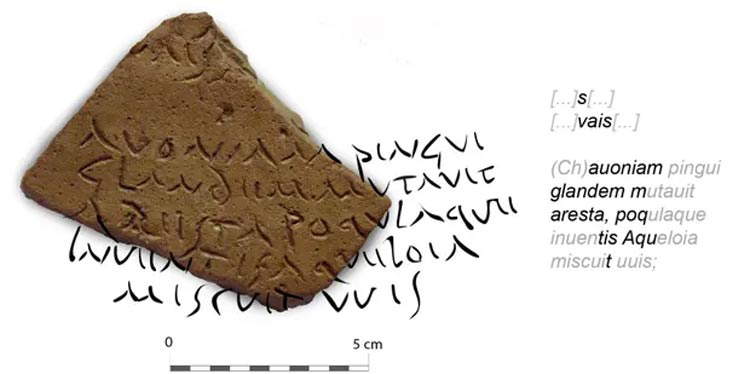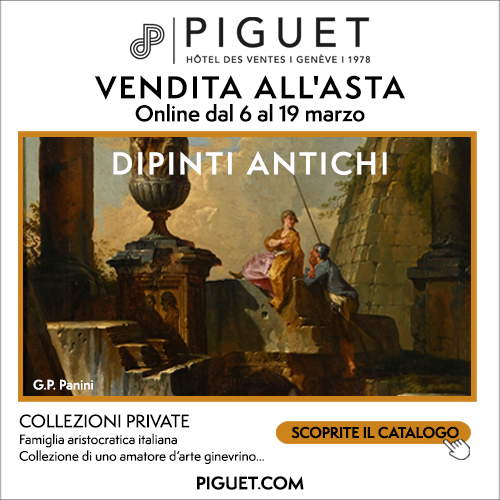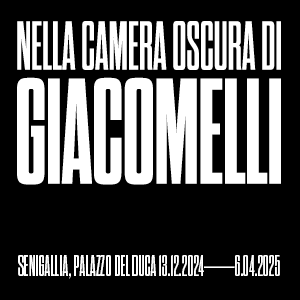Unprecedented discovery in Spain: amphora fragment found with Virgil citation
Important discovery in Spain: a fragment of an 1800-year-old amphora has in fact been found that bears an inscribed quotation from Virgil’s Georgics . This is the first known case of an amphora with a literary quotation: in fact, if the production of amphorae with inscriptions in the province of Hispania Betica (corresponding roughly to today’s Andalusia, and which had as its capital Corduba, present-day Cordoba) is known, this is the first time that such an inscription conveys an author’s phrase. Until now, in fact, only specimens with simple letters, or names of people, or even dates, quantities, and information about producers were known. The discovery was published in the June issue of the Journal of Roman Archaeology, in an article bearing the signatures of Ivan González Tobar, Antonia Soler i Nicolau and Piero Berni Millet, the authors of the discovery, according to whom the find is of “exceptional interest to archaeologists, epigraphists and philologists of Vulgar Latin.”
The inscription was traced on the clay ante cocturam, that is, before the amphora used in ancient times to transport oil was fired. The fragment measures just 6 x 8 centimeters, but that is enough to identify the inscription, which must have spanned four or five lines. Identification was not easy, as there were spelling errors that prevented one from immediately discovering what it was, but in the end it turned out to be a few verses from the first of the Georgics: “in your grace on earth / the acorn caonia was changed into a fertile ear / and to the water of Achelóo was mixed wine.”
This is also not the first time an earthenware artifact with Virgil’s verses has been found: in fact, several bricks with quotations have been found in the past, probably because before being used as building material they were used for teaching. A quotation from Virgil on an amphora, however, is currently a unicum, and consequently there are questions about the nature of this object. According to the three Spanish archaeologists, the idea is that these verses were not meant to be seen (in fact, they are found in the lower portion of the amphora): perhaps the author of the inscription is simply a particularly educated worker who worked in the factory that produced the amphorae, and wanted to illustrate the verses to a colleague, writing them from memory. But given the uniqueness of the piece, it is extremely difficult to speculate beyond mere suggestion.
 |
| Unprecedented discovery in Spain: amphora fragment found with Virgil citation |
Warning: the translation into English of the original Italian article was created using automatic tools. We undertake to review all articles, but we do not guarantee the total absence of inaccuracies in the translation due to the program. You can find the original by clicking on the ITA button. If you find any mistake,please contact us.





























